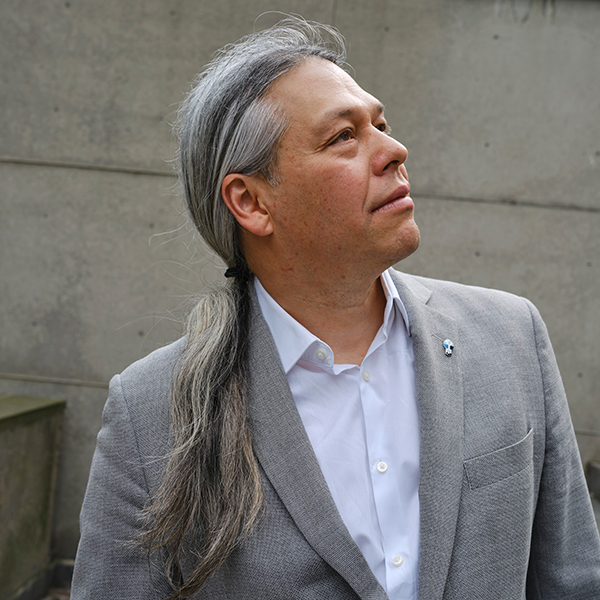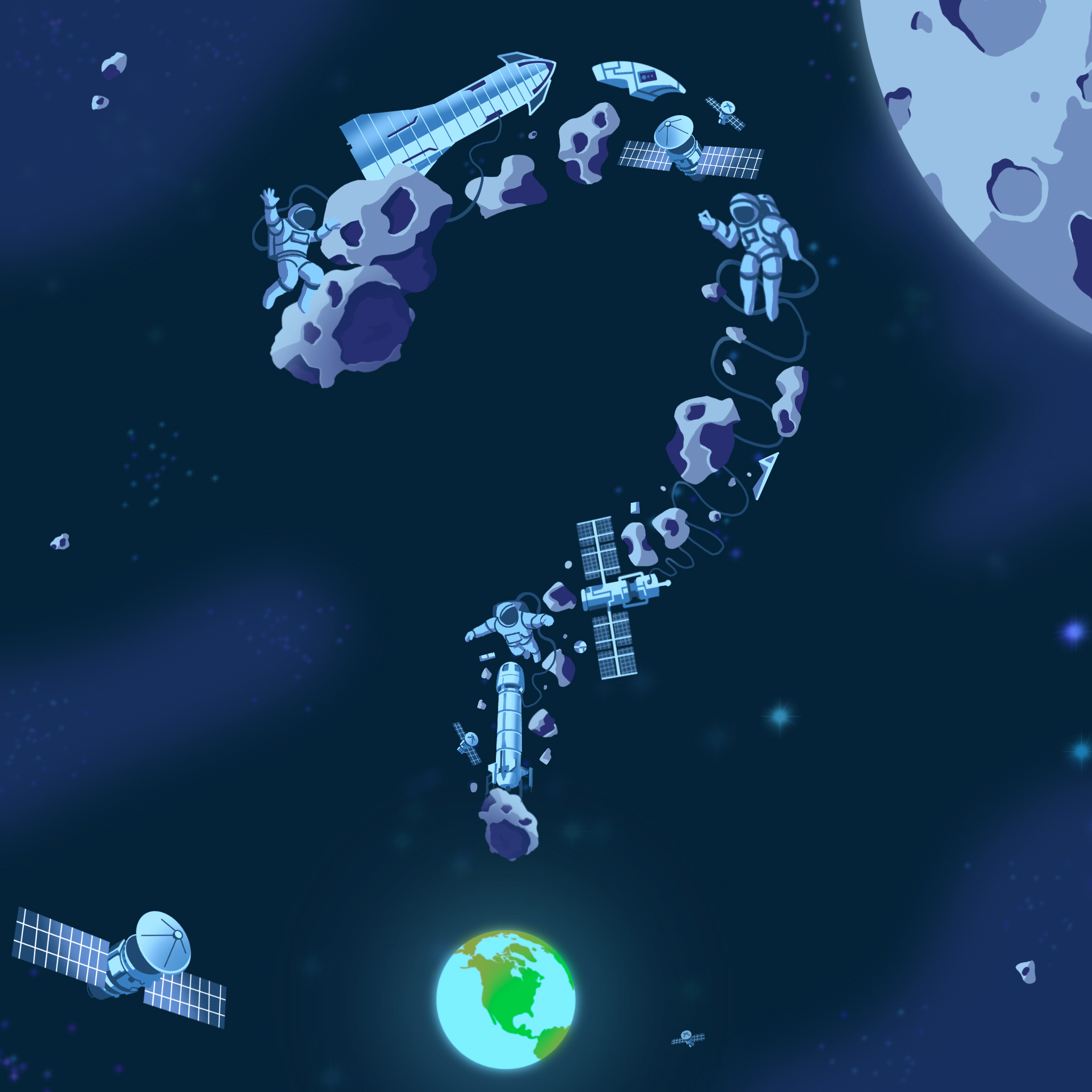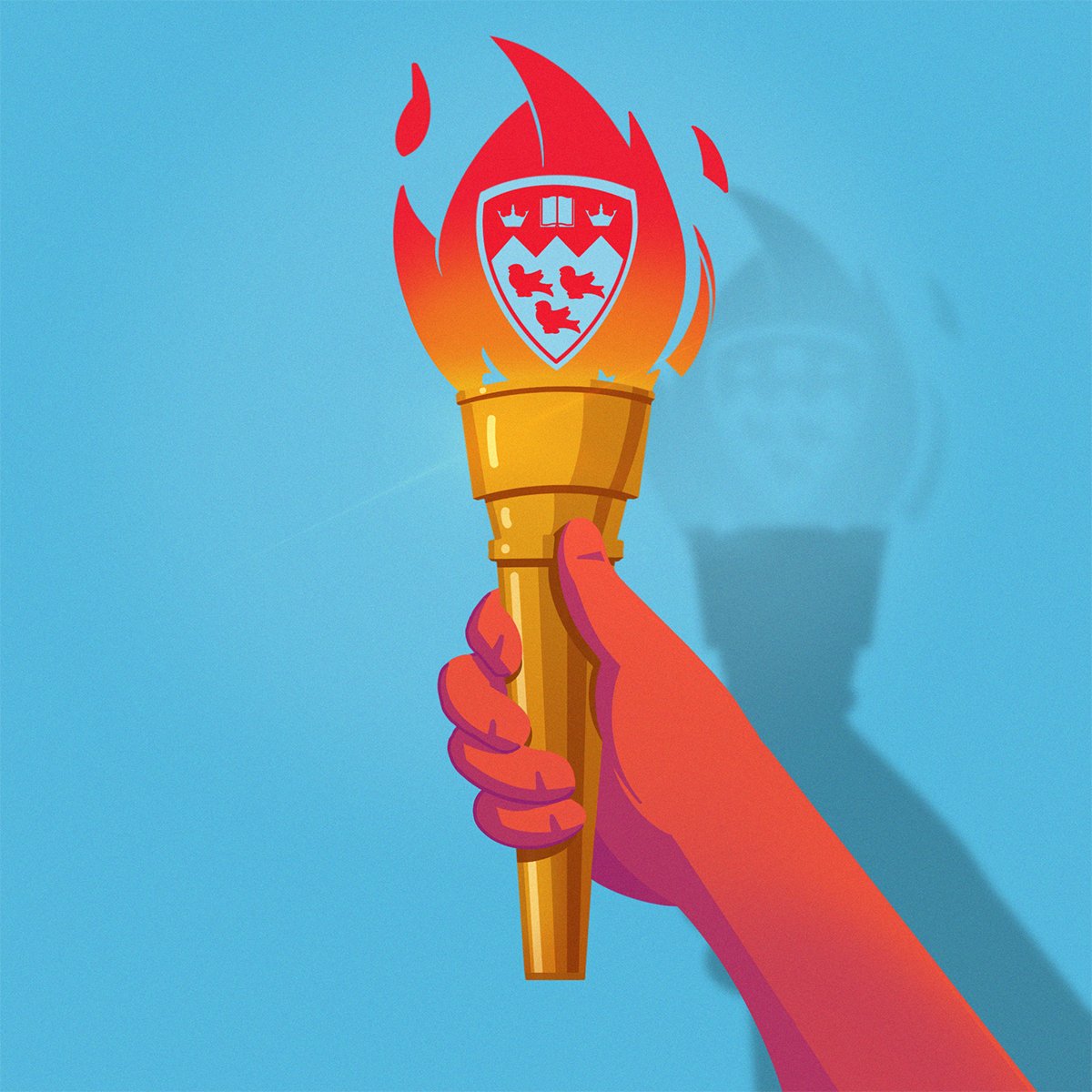Twenty years ago, the world looked like it was firmly on the right track.
The Berlin Wall was gone, the Cold War was over and peace accords had brought an end to hostilities in the Balkans and Northern Ireland. International trade was expanding. The global community seemed to be serious about tackling climate change and improving living standards in developing countries.
In his new book, Missing the Tide, Donald Johnston, BCL’58, BA’60, LLD’03, recalls the final years of the 20th century as “a time brimming with optimism about a great future lying ahead for our children and the generations that would follow.”
Those high hopes have largely evaporated in the years since.
“Everything seemed to be coming together back then,” says Johnston, the former secretary-general of the Organization for Economic Co-operation and Development. “Now, it’s going in the other direction.”
As the head of the OECD, Johnston had a unique vantage point. With 35 member countries, the international body plays an influential role on the world stage, particularly in policy matters. The OECD is in a rare position to compare and contrast the different approaches of its member countries in various spheres – how are different school systems performing, for instance.
And it can also help steer countries towards certain shared goals – the OECD Anti-Bribery Convention, organized during Johnston’s tenure, is one example.
“One of the beauties of the place was that it had a very broad reach,” says Johnston of the OECD. “I had a position where I was really able to watch the geopolitical currents.”
Johnston describes his book as “my attempt to understand how we went from there to here. I started to pick through the wreckage to try to come up with some sort of analysis – which I’m sure many will contest.”
As Johnston assesses the troubling directions taken by autocratic governments in Turkey and Russia in recent years, he is quick to assign a large portion of the blame to Western democracies.
Johnston says he “spent a lot of time with” current Turkish president Recep Erdoğan during his OECD tenure, and Erdoğan’s desire for his country to receive European Union membership was plain to see. It never happened. In his book, Johnston characterizes that “as a sad example of not ‘seizing the moment.’” He believes that EU membership would have constrained many of Erdoğan’s more authoritarian impulses.
He also believes that when it comes to Russia, “we really screwed up.” With the Cold War over, the West should have reached out to Russia far more generously than it did. “Western countries should have been doing everything in their power to build mutual trust and bring Russia into the grand community of democratic nations. Instead, they were trying to contain Russia,” he writes in his book.
The West could have used its resources to help Russia achieve a better regulated economy and a sturdier democratic foundation, but not enough was done. While other post-communist economies were lent a helping hand by the EU and others in the West, Russia was largely left to struggle on its own.
Johnston is clearly no fan of Vladimir Putin, but he says he understands why the Russian leader would regard the West suspiciously after watching NATO woo former Soviet bloc countries.
“We failed Russia, but more importantly we failed the Russian people,” Johnston argues. “Think where we would be today had we really embraced Russia and Russia was now a partner in dealing with the Middle East and climate change and trade and fighting corruption – what a difference it would make.”
In his book, Johnston also takes aim at economists and the influence they wield. “I’ve enjoyed working with them over the years and you can’t put them all in the same basket,” he says, but he worries that the certainty with which many of them dispense their opinions is frequently at odds with how firmly they understand the world around them. The problem with economists, Johnston suggests in his book, “is that they do not know what they don’t know and generally refuse to admit it.”
He points to the 2007-08 global financial crisis as one calamity that caught most economists by surprise.
Johnston has long been a firm proponent of the benefits of expanding international trade. As a Liberal MP who supported the Free Trade Agreement with the U.S. in the late eighties, he found himself at odds with his own party.
Most people benefit from freer trade practices, Johnston says – but there are losers.
“We did not make the necessary adjustments for our labour forces, in the United States or in Canada, to really accommodate those who were bound to be [adversely] affected by free trade,” says Johnston. “And that became Donald Trump’s constituency.”
Johnston also believes the global community has badly mishandled the challenges posed by climate change.
“I used to be an optimist on that front. Back in 1997, we thought we had it licked. Remember Kyoto?”
While the Kyoto Protocol was a definite step in the right direction, Johnston believes it didn’t go far enough, while the public, assuming that the international agreement did mean that effective steps were being taken, relaxed about the threats posed by global warming.
Johnston regards the more recent Paris Agreement in a similar way – too much self-congratulation and not enough meaningful or enforceable actions.
Countries should have started pursuing large scale research efforts devoted to carbon capture technologies, more effective renewable energy methods and safer approaches to nuclear energy decades ago, says Johnston. But, for the most part, they didn’t.
“I think everybody is pessimistic now, even if they don’t say it out loud. I don’t see anything hopeful on the horizon unless there is some sort of technological breakthrough we can’t anticipate. If the science is right, we’re in for a very difficult period.”
Johnston says he isn’t so sure that the multiple country negotiations that lead to accords such as the Paris Agreement are a particularly effective way of dealing with urgent international issues. He wonders if something along the lines of the UN Security Council would work better.
“It can be difficult to get things done if you have a hundred-plus countries in the room. I think you have to have a world steering committee for some things – and that means Canada won’t necessarily be at the table. If you have China, the United States, Russia, the European Union and maybe Japan and a few others – if they actually came up with a common position on some of these issues, each of these countries has a huge sphere of influence.”
Johnston dedicates his book to public servants and that’s no accident. He believes that many of the world’s biggest challenges can be at least partially addressed by having well-trained, well-paid (making them less susceptible to corruption) and committed public servants.
“When I first went into government [he served in Pierre Trudeau’s cabinet between 1980 and 1984], I had a bit of a bias against public servants. Do you remember that old Allan Fotheringham line about how public servants were underworked and overpaid? But I came around quickly. A government can’t be any better than its public servants. Governments make decisions, but [public servants] are the ones who make things happen.
“They also have a huge influence on public policy. They’re the ones with a long-term view. That’s very important for something like climate change. They bring the longer view and they bring institutional memory – they know what worked and what didn’t work.”


